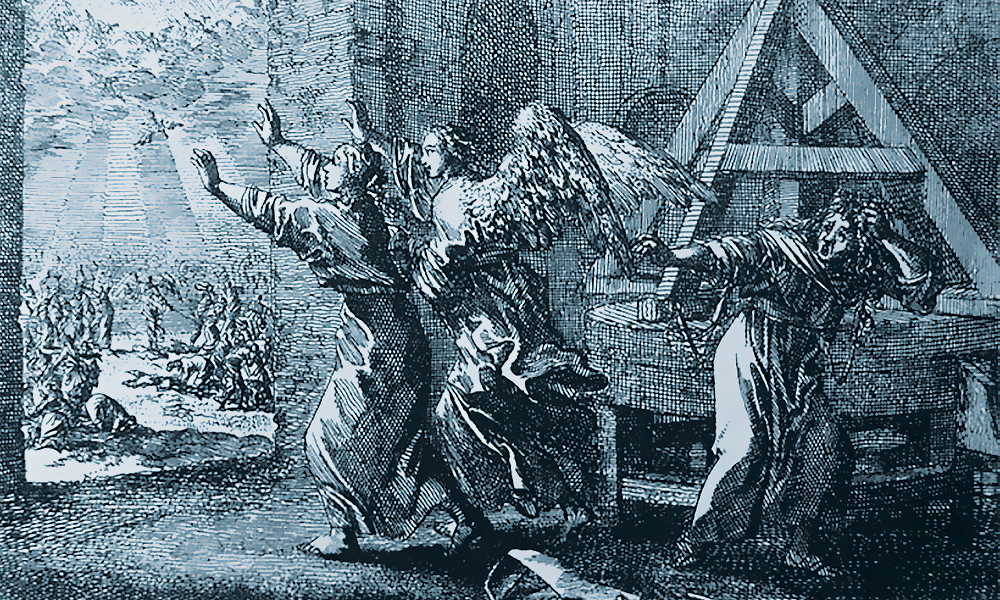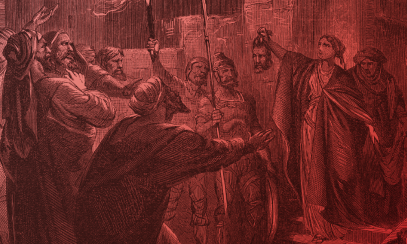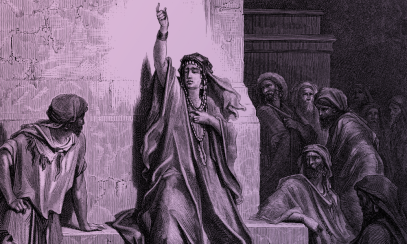
What do Catholics believe about the Rapture?
We do not want you to be unaware, brothers, about those who have fallen asleep, so that you may not grieve like the rest, who have no hope. For if we believe that Jesus died and rose, so too will God, through Jesus, bring with him those who have fallen asleep.
Indeed, we tell you this, on the word of the Lord, that we who are alive, who are left until the coming of the Lord, will surely not precede those who have fallen asleep. For the Lord himself, with a word of command, with the voice of an archangel and with the trumpet of God, will come down from heaven, and the dead in Christ will rise first.
Then we who are alive, who are left, will be caught up together with them in the clouds to meet the Lord in the air. Thus, we shall always be with the Lord. Therefore, console one another with these words. (1 Thes 4:13-18)
We do not want you to be unaware, brothers, about those who have fallen asleep, so that you may not grieve like the rest, who have no hope. For if we believe that Jesus died and rose, so too will God, through Jesus, bring with him those who have fallen asleep.
Indeed, we tell you this, on the word of the Lord, that we who are alive, who are left until the coming of the Lord, will surely not precede those who have fallen asleep. For the Lord himself, with a word of command, with the voice of an archangel and with the trumpet of God, will come down from heaven, and the dead in Christ will rise first.
Then we who are alive, who are left, will be caught up together with them in the clouds to meet the Lord in the air. Thus, we shall always be with the Lord. Therefore, console one another with these words. (1 Thes 4:13-18)
When a discussion turns to the end times, Christians can sometimes differ about what they think will transpire before the second coming of Christ. For example, there are some who take 1 Thessalonians 4:17 (in bold at left) to mean the righteous will be taken up to heaven in the days leading up to the period of great tribulation that will precede the second coming of Christ. In this view, only the sinful will be left behind to suffer during this period of trial. This taking up of the righteous to heaven before the great tribulation has been called the Rapture and has been popularized by books, TV programs and movies, most notably the “Left Behind” series.
The problem with this view
From the Catholic perspective, the above interpretation of 1 Thessalonians 4:17 is simply not supported by Scripture. In Mark 13:24-27, Matthew 24:26-31 and 2 Thessalonians 2:1-12, the second coming of Christ is clearly placed after the tribulation. Further, St. Paul makes it clear that the resurrection of the dead happens only at Christ’s second coming, which will be announced by an archangel’s cry and a trumpet blast. There is not one place in the New Testament where a “secret” coming of Christ is mentioned whereby the righteous are spared the time of tribulation.
In reality, the interpretation of the Rapture preceding the second coming of Christ makes the second coming into different moments. It turns the Rapture into a second coming, which makes Christ’s return after the tribulation a third coming. This view, again, has no foundation in Scripture.
A pre-millennial view
How someone views the Rapture often depends on their view of the millennium. The millennium refers to the thousand-year period of Christ’s reign. The Book of Revelation (chapter 20) describes this period as a precursor to the end of the world. After this time, “Satan will be released from his prison. He will go out to deceive the nations at the four corners of the earth.” (Rev 20:7-8)
Those Christians most likely to hold to the “Left Behind” interpretation of the Rapture believe the millennium to be a golden age for earth during which the entire world will be Christianized. The millennium will be a time of Christ’s physical reign, so it occurs after the second coming. This period will be immediately followed by the final judgment.
Initially, this group believed that the second coming would occur only after the period of great tribulation. However, some of these Christians began to place the Rapture before the great tribulation in the 1800s. This view, known as the “pre-tribulational” or “pre-millennial” view, got traction in the Fundamentalist movement known as Dispensationalism.
The Catholic view
The Catholic Church rejects the pre-millennial view. For Catholics, Revelation 20 is symbolic and does not signify a golden age on earth in which the Christianization of the world will take place. Rather, it will be a period of Christ’s rule on earth through his Church.
Further, good and evil will continue to exist on earth until the very end. Christ’s second coming after the tribulation period will alone resolve the tension between the righteous and the sinful. That said, it is true that Catholics believe that Christ will gather the righteous to be with him in heaven. However, Catholics do not normally refer to this as the Rapture.
In terms of Christ’s physical reign on earth during the millennium, the Catechism (676) asserts that messianic hope will only be realized “beyond history through the eschatological judgment.” Any claim that this hope will be realized within history, especially in some political form, is to be rejected.
DID YOU KNOW…
The word “rapture” is derived from the Latin Vulgate of the passage that began this article. In 1 Thessalonians 4:17, the Latin word rapiemur is used to communicate “we … will be caught up.” This word is an inflection of the Latin verb rapio, which can be translated as “to grab” or “to carry off.”
QUOTABLE QUOTES
Who made the following statement about the relationship between righteousness and tribulation?
“We always find that those who walked closest to Christ were those who had to bear the greatest trials.”
A. St. Thomas More
B. St. Teresa of Ávila
C. St. John of the Cross
D. St. Augustine
Answer: B. St. Teresa of Ávila, who also once quipped, “If this is the way you treat your friends, no wonder you have so few!”
Doug Culp is the delegate for administration and the secretary for pastoral life for the Catholic Diocese of Lexington.



